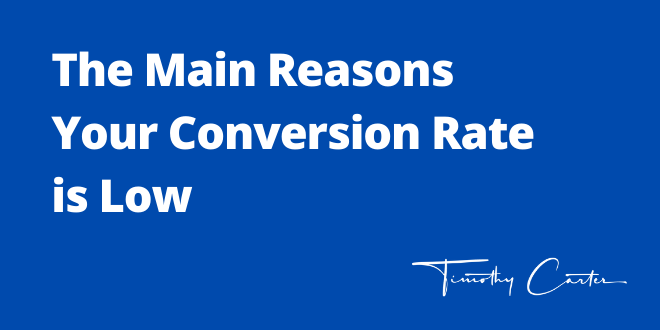
Should Your Business Spend Thousands of Dollars on a Strong Domain Name?
February 24, 2022
How to Squeeze More Value Out of Your Best Content
March 25, 2022After starting an online business and launching a website, digital entrepreneurs typically have one, all-encompassing goal: Increase web traffic as much as possible as quickly as possible.
For the most part, this motivation makes perfect sense. Getting more people to your website means you’ll have more people becoming familiar with your brand and a path to growing your visibility and reputation. Assuming your conversion rate remains the same, more traffic also means you’ll process more transactions and ultimately make more money.
But is there such a thing as too much web traffic? Can you grow your website’s traffic too quickly or to a level that’s not sustainable?
It seems like a silly question, on par with “is it possible to make too much money?,” but as you’ll see, it’s worth exploring.
Server loads
First, let’s talk about server loads. When a user visits a website, they make a call to a server, requesting data that can ultimately be presented in their browser. Servers are only able to handle a certain number of requests within a given timeframe, with better upgraded servers capable of handling more traffic.
If your server becomes overwhelmed with the number of people visiting your website, and your server isn’t able to keep up, your entire website could go down. In fact, this phenomenon is responsible for the creation and execution of DDoS attacks, which deliberately overwhelm sites with traffic in order to deny ordinary users service.
However, there are some very effective countermeasures you can use to avoid this problem. Sometimes, simply switching to a dedicated server or upgrading your server is all it takes to accommodate the increase in traffic; you just don’t want to be caught unprepared with a sudden surge.
Security issues
Website popularity is almost always a good thing, but don’t forget that it means more eyes are going to be on your website and your assets. If your brand becomes a household name, it’s going to become a much bigger target for cybercriminals.
Obviously, you shouldn’t avoid increasing your web traffic just because you’re scared of being hacked. But it does mean you should have better cyber security measures in place before you see a surge in your website traffic.
Red flags
In some situations, an unexpected increase in your web traffic or your activities designed to increase your web traffic could trigger red flags. For example, if you build hundreds of links to your website in an effort to boost your search engine rankings and your referral traffic, Google might flag that as suspicious activity and penalize your site.
Audience targeting issues
In the marketing world, it pays to prioritize quality over quantity. If all your efforts are devoted to increasing the number of people visiting your website, you might end up with audience targeting issues. A website with 10,000 relevant visitors is probably going to perform better than a website with 100,000 irrelevant ones.
If you increase your traffic without audience considerations in mind, you could end up with:
- Lost opportunities. If a user visits your website and doesn’t find what they’re looking for, that’s a lost opportunity. If you provide that user with the content they want to read or the products they want to buy, the visit then becomes a sale. There’s no reason to bring someone to your website if you can’t offer them anything.
- Poor user behavior metrics. Poor audience targeting can also lead you to poor user behavior metrics. Your website is going to have much higher bounce rates and exit rates, and the time a user spends on a single page is going to be much lower. Collectively, this can hurt your domain authority and reduce your likelihood of ranking highly in relevant searches.
- Reputation issues. If you’re massively funneling users to your site without giving them something important or valuable in return, eventually you’re going to face reputation issues. People are going to see your website as desperate to attract new visitors at all costs, and they’re going to feel like you don’t care about their needs or what is relevant for them.
- Lower overall conversion rates. Remember, your top priority is probably achieving conversions, whether that means closing more sales or securing more leads. If you increase your raw traffic without improving onsite interactions or audience targeting, your conversion rate might actually decrease.
Sustainability/service issues
Also, don’t forget that many businesses die simply because they grow too quickly. They take on far more customers than they reasonably can, and they don’t have the staff, the infrastructure or the processes in place to serve them. If your website becomes overwhelmed with visitors before you’re able to give them a great experience, your entire business could collapse.
So is there such a thing as “too much” web traffic? In a sense, yes. If you grow too quickly, if you don’t have the resources to support your audience, or if you’re blindly targeting the wrong audience, excessive web traffic can work against you. But with the proper strategies and precautions in place, your scalability is practically infinite.
Originally appeared in Entrepreneur






